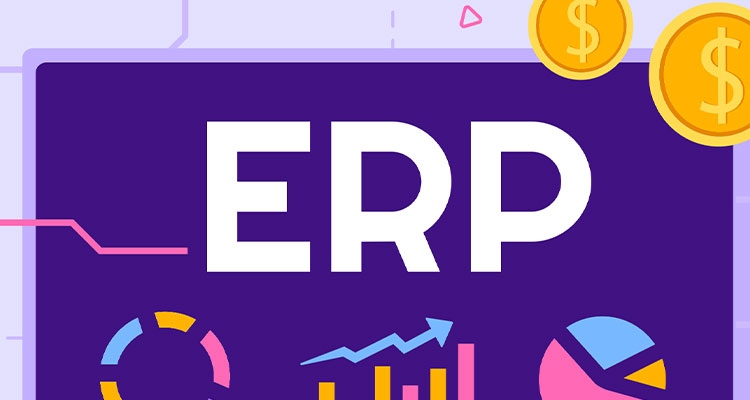How to drive supply chain excellence and data-driven insights through Cognitive ERP
Traditionally, Enterprise Resource Planning (ERP) was designed to integrate business functions into a unified information system, forming the backbone of modern enterprises. This integration was crucial for streamlining data management and operations, especially within complex supply chains. For decades, ERP has enabled businesses to stay efficient and competitive. Today, as the need for real-time data and automation grows, the significance of ERP continues to increase.
It’s no secret that supply chains are changing, and this is in no small part due to the constant evolution of ERP, which continues to push boundaries for supply chain operations. The integration of AI into ERP systems has delivered what Epicor refers to as ‘Cognitive ERP.’ This new standard makes AI enhancements seamless for users, empowering them to interact with ERP and companion products using plain language. By freeing employees from mundane, repetitive tasks, Cognitive ERP enables them to focus on more strategic and creative work–driving greater efficiency and productivity across the entire supply chain.
The evolution of Cognitive ERP
By incorporating AI, Cognitive ERP systems provide a comprehensive platform that streamlines back-office tasks, boosts productivity, and offers real-time

operational visibility. By serving as a single source of truth, these systems facilitate seamless information flow and decision making across departments.
A notable advantage of Cognitive ERP is its user-centric design. Workers no longer need to navigate complex interfaces or learn specialized coding; they can communicate their needs in natural language. By reducing the complexity of interactions with ERP systems, Cognitive ERP enables a more agile and adaptive workforce, capable of responding swiftly to changing market demands and operational challenges as they arise.
Contextual intelligence
Thanks to Cognitive ERP, the future of these systems is not just about managing transactional business processes as a system of record, but about delivering contextual intelligence through industry-focused platforms, cloud technologies, and people-centric AI capabilities, as a system of action.
Cognitive ERP offers significant advancements for supply chain management. These systems provide optimized instructions and real-time updates, using AI-driven insights to allocate resources efficiently, reduce downtime, and enhance reliability by predicting hazards and suggesting preventative measures.
They enable forecasting of potential logistics disruptions by analyzing sensor data and historical records, enabling proactive management to manage challenges and minimize costs.
A system of action
To fully appreciate the potential of Cognitive ERP, we need to examine real-world applications across industries:
Logistics
These systems are revolutionizing logistics operations by providing real-time visibility into the movement of goods. By integrating data from IoT devices and sensors, they can predict delays, optimize routes, and ensure timely transport from point to point. This not only reduces operational costs but also boosts customer satisfaction by providing more precise delivery timelines.
Retail
In retail, Cognitive ERP enables businesses to maintain optimal inventory levels. AI anticipates customer demand based on historical data, market trends, and seasonal variations. This predictive capability ensures that retailers have the right stock at the right time, reducing overstocking or stockouts. Real-time inventory tracking also helps retailers respond quickly to sudden changes in demand, improving sales and customer loyalty.
Manufacturing
Manufacturers are leveraging Cognitive ERP systems to enhance production processes. By analyzing data from production lines and key machinery, these systems can predict maintenance needs, minimizing downtime and ensuring that equipment operates at peak efficiency. This real-time data on production performance allows manufacturers to adjust production schedules and reduce operational costs, resulting in a more efficient and agile process that quickly responds to the market.
Distinctive capabilities and empowering workers
The vertical industry-specific capabilities of Cognitive ERP serve as a key facilitator, distinguishing it from broader horizontal applications. This targeted approach allows the system to meet the unique needs of various industries with greater precision. By offering tailored solutions, Cognitive ERP systems offer highly specialized support, enhancing their overall effectiveness.
Additionally, Cognitive ERP empowers workers by delivering key insights at the right time. When employees have access to essential information and actionable insights, they can make more informed decisions quickly and efficiently. This empowerment not only boosts individual performance but also enables businesses to be more competitive in the market by fostering a more agile and adaptive workforce.
Embracing the future
Thanks to the ever-growing need for greater connectivity, collaboration, and trust within supply chains, the ERP market is evolving rapidly. Businesses are increasingly recognizing the value of Cognitive ERP in not only optimizing current operations but also in building resilience against future disruptions. The shift towards cloud-based services and AI-driven analytics is expected to continue, with a growing emphasis on industry-specific solutions that cater to specific needs.
As the business landscape continues to evolve, the adoption of Cognitive ERP systems will be crucial for companies looking to maintain a competitive edge. These systems offer a holistic approach to managing enterprise resources, integrating cutting-edge technology that drives efficiency, innovation, and growth.
Vaibhav Vohra
As Epicor’s CPO and CTO, Vaibhav Vohra is responsible for product strategy, development, management, learning, and design. He brings deep enterprise SaaS transformation and product development experience working across a variety of industries such as manufacturing, retail, and aerospace. Prior to Epicor, Vaibhav built and scaled startups including the largest consumer facing robotics and AI deployment in the US.
